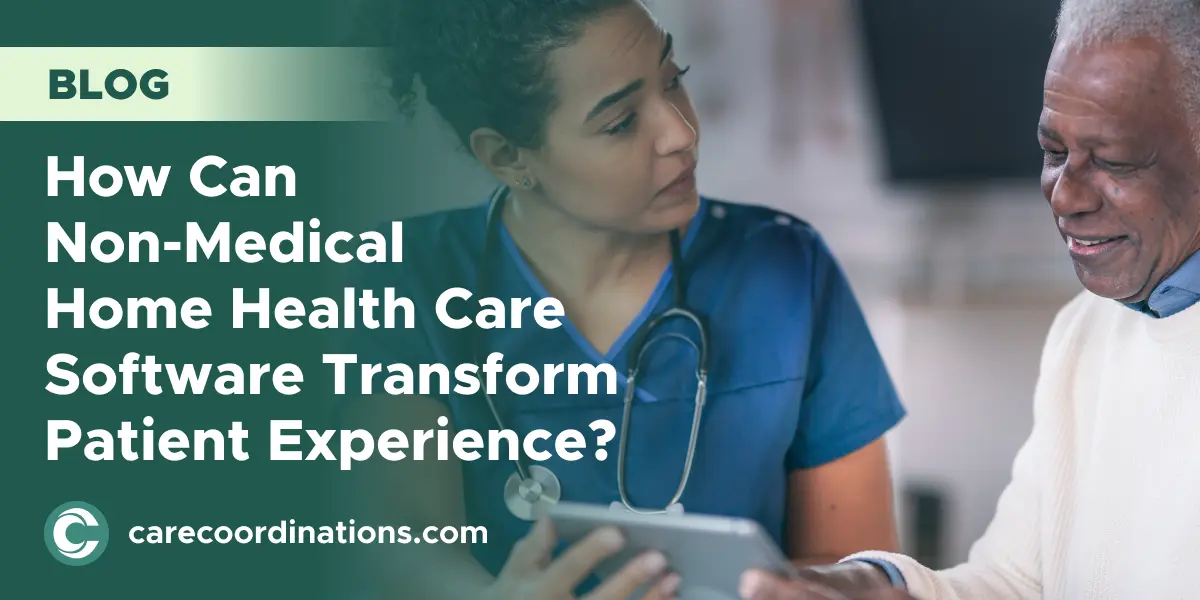As the healthcare landscape continues to evolve, non-medical home healthcare emerges as a pivotal component in supporting the everyday health needs of patients, particularly our beloved elderly and those with chronic conditions. Enhancing patient experience in this setting is not just a value-add; it's essential for delivering compassionate, effective care. This article explores the transformative potential of home healthcare software in creating a more responsive and personalized care environment.
The Rise of Home Health Care
A. Statistics and Trends in Home Health Care Popularity
In recent years, there has been a dramatic increase in the popularity of home health care services. According to the National Association for Home Care & Hospice, over 5 million Americans currently receive home health care. This number is only expected to grow with an aging population and a growing preference for aging in place.
Also Read: How Efficient Care Coordination Can Enhance Patient Outcomes
B. Factors Driving the Growth of Non-Medical Home Health Care Services
The surge in non-medical home health care can be attributed to several factors. The rising cost of hospital care and the preference for familiar environments among patients play significant roles. Additionally, technological advancements make it feasible to provide sophisticated care outside traditional medical facilities.
C. The Role of Technology in Modern Health Care
Technology's role in modernizing home health care cannot be understated. From digital health records to telehealth services, technology is making it possible to deliver more efficient, effective, and personalized care directly in patients' homes.
Understanding Non-Medical Home Health Care Software
Non-medical home health care software refers to various applications designed to manage the day-to-day operations of home health care services. These tools support non-medical care’s administrative, logistical, and clinical aspects.
• Key Features of Typical Home Health Care Software Solutions
Standard features of these software solutions include patient scheduling, caregiver management, billing and invoicing, patient engagement, and communication tools. These features ensure that the care provided is well-coordinated and meets each patient’s specific needs.
• Different Types of Software Available
The market offers a range of software solutions tailored to various aspects of home health care. These include scheduling tools to ensure caregivers are efficiently assigned, patient management systems tracking health progress and activities, and communication platforms facilitating interaction between patients, caregivers, and family members.
Also Read: How Effective Communication Reduces Medical Errors in Nursing
Transforming Patient Experience Through Software
• Personalized Care Plans
Software solutions excel at creating customized care plans that reflect each patient’s unique needs and preferences. By enabling dynamic adjustments to these plans, caregivers can respond more effectively to patient condition or preferences changes.
• Improved Communication
Effective communication is vital in non-medical home health care. Software tools enhance the clarity and frequency of interactions between patients and caregivers and keep family members informed and involved in the care process.
• Enhanced Scheduling and Logistics
Sophisticated scheduling functionalities in software can streamline appointment and care routines, minimizing conflicts and ensuring that caregivers are punctual and prepared.
• Data Management and Accessibility
With robust data management capabilities, these software systems ensure patient records are securely stored and easily accessible. That ultimately facilitates better ongoing health monitoring and more effective follow-ups.
• Remote Monitoring and Assistance
Integrating mobile apps and telehealth features allows for continuous patient health monitoring, potentially preventing emergencies and promoting timely medical intervention.
Challenges and Considerations
While the benefits are significant, adopting new software systems comes with challenges. Data privacy, security, and the need for comprehensive training for caregivers must be addressed to maximize the effectiveness of technology solutions.
The Future of Non-Medical Home Health Care Software
Innovative technologies like AI and machine learning are poised to revolutionize non-medical home health care further. These developments promise to enhance predictive care capabilities and improve care customization, paving the way for smarter, more responsive home health care environments.
Also Read: Transforming Healthcare Delivery: The Power of Care Coordination Software
Empower Your Home Health Care Service with Cutting-Edge Software
The transformation of patient experience through non-medical home healthcare software represents a significant advancement in how care is delivered at home. As technology continues to evolve, it is imperative for healthcare providers to embrace these innovations, ensuring that they stay at the forefront of quality care delivery.
For those considering integrating such technologies, the time to act is now. Embracing these tools can significantly enhance the effectiveness and efficiency of care, bringing about profound benefits for patients and caregivers alike.


